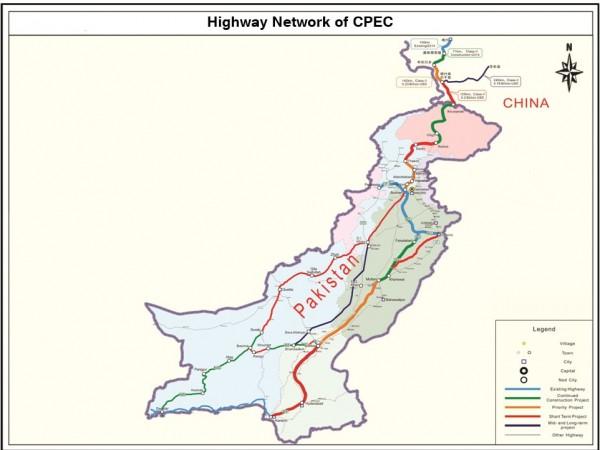
China's huge 'Belt and Road' trade infrastructure project which is expanding to encompass every region on the planet is running into trouble as some countries have started complaining about being burdened with Chinese debt, reports AFP.
The 'new Silk Road', which was announced in 2013 by Chinese President Xi Jinping, is an initiative which includes construction of roads, railways and ports across the globe with China providing billions of dollars in loans to countries where these infrastructure projects are being built.
But five years down the line there are growing concerns that China is setting up debt traps in countries which don't have the means to pay back the loans.
On the project's anniversary last week, Xi defended the project saying that it was not a China club and described Belt and Road as an 'open and inclusive' project.
He said China's trade with countries which are part of the Belt and Road project exceeded $5 trillion with an outward direct investment of more than $60 billion.
But all are not buying it and wondering if it is worth the cost.
Malaysian Prime Minister Mahathir Mohamad announced during his recent trip to China that his country was shelving three Chinese-funded projects including the laying of a $20 billion rail line.
Pakistan Prime Minister Imran Khan has also expressed concern about his country's ability to repay Chinese loans acquired to build the multi-billion dollar China-Pakistan Economic Corridor.
Mohamed Nasheed, the exiled leader of opposition in the Maldives says China's money power and the resulting influence amounted to 'land grab' and 'colonialism' with China owning 80% of Maldives' debt.
Sri Lanka has paid a heavy price of being indebted to China. It had to lease out a strategic port to China for 99 years after it was unable to repay the $1.4 billion loan it had taken from China to build it.
According to Anne Stevenson-Yang, co-founder and research director at J Capital Research, China doesn't have competent people handling its foreign aid and expansion of soft power.
"So it's not surprising what happened in Malaysia's case which nobody anticipated," she told AFP.
She added that as the yuan becomes weaker and China's real intentions being opaque, it is very likely that countries will take a dim view of such projects.
The Belt and Road endeavour ushers in infrastructure improvements in poor countries while at the same time giving China a place to unload its industrial overcapacity and stock up on raw materials.
A study by Center for Global Development, a US think-tank, found that eight countries − Pakistan, Djibouti, Maldives, Mongolia, Laos, Montenegro, Tajikistan and Kyrgyzstan – receiving Silk Road funds would find it hard to return them.
The cost of the China-Laos railway project at $6.7 billion is half of Laos' GDP, says the study.
International Monetary Fund says Djibouti faces a high risk of debt distress as its debt jumped from 50% of GDP in 2014 to 85% in 2016.
China denies that it is saddling countries with debts they repay with great difficulty or not at all. Foreign ministry spokeswoman Hua Chunying says Chinese loans to Pakistan and Sri Lanka are just a small part of their overall foreign debt.

















